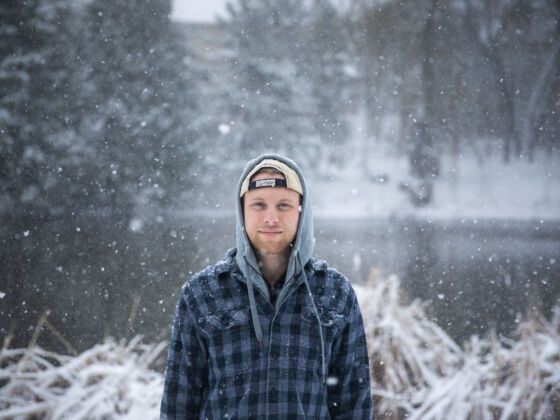You know you’re in Maine in winter when the TV weather forecast describes twenty degrees Farenheit as “balmy.”
For over seven years running, I’ve been traveling regularly from my home in New York City and now Washington, DC to Freeport, Maine, where I teach at the Stonecoast low-residency graduate program in creative writing. When I tell people what I do they often say, “Ooo, Maine in winter. Must be cold.”
